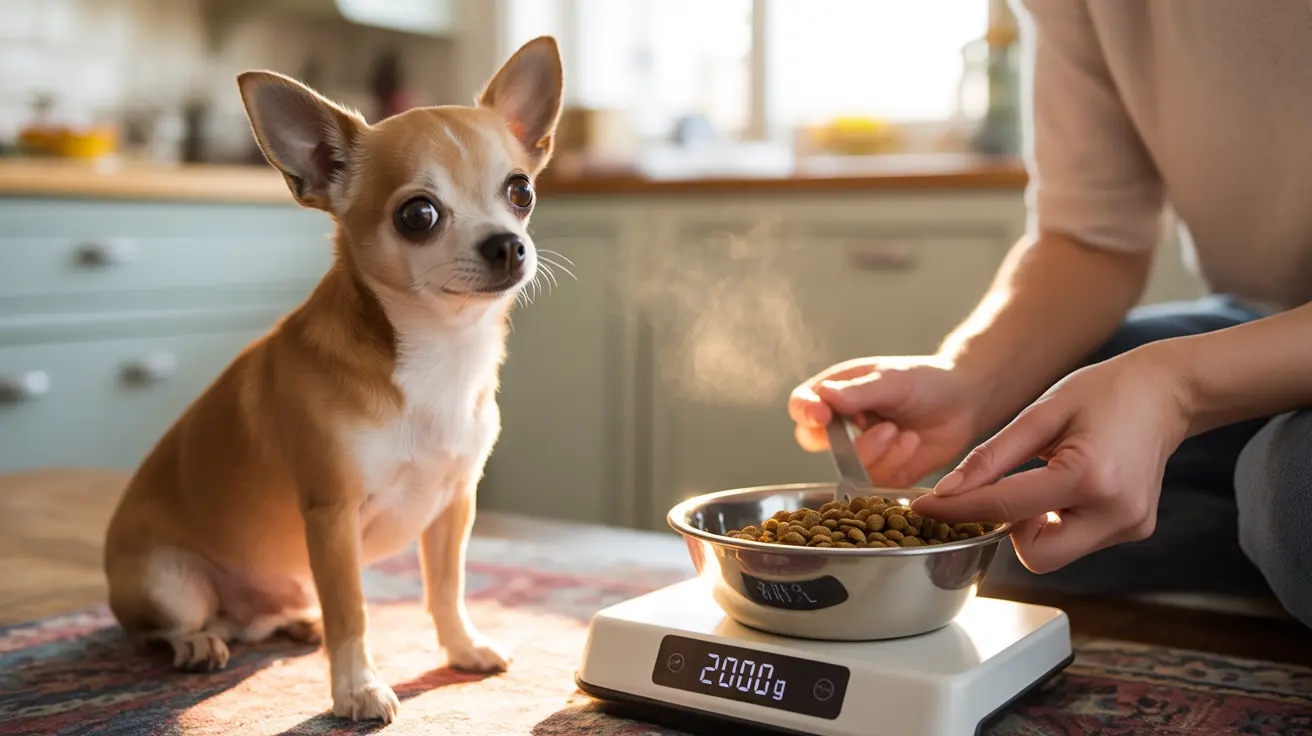Understanding how much to feed a 10-pound dog is crucial for maintaining their health and preventing obesity. Whether you have a Chihuahua, Shih Tzu, or another small breed, proper portion control ensures your pet receives the right nutrition without overfeeding.
This comprehensive guide will walk you through exactly how much food your 10-pound dog needs, taking into account factors like age, activity level, and food type. We'll also provide practical measuring tips and warning signs of incorrect portion sizes.
Daily Food Portions for a 10-Pound Dog
For a healthy adult 10-pound dog, the general feeding guidelines are:
- Dry kibble: ½ to 1¼ cups per day
- Wet food: 3/4 to 1 can (13 oz) per day
- Homemade food: 3.2 to 4.8 ounces daily
These portions should typically be divided into two meals per day for adult dogs. However, remember that these are starting points - your dog's individual needs may vary.
Understanding Caloric Requirements
A typical 10-pound adult dog needs approximately 346 calories per day to maintain a healthy weight. Active dogs may require up to 20% more calories, while senior or less active dogs might need 20% fewer calories.
Factors Affecting Food Portions
Several key factors influence how much you should feed your 10-pound dog:
- Age (puppies need more frequent meals and higher calorie intake)
- Activity level (working dogs need more food than couch potatoes)
- Health status (certain conditions may require dietary adjustments)
- Food type (different foods have varying caloric densities)
Measuring and Monitoring Food Intake
Accurate measurement is essential for proper portion control:
- Use standard measuring cups for dry food
- Employ a kitchen scale for wet or homemade food
- Track feeding times and amounts in a log
- Monitor your dog's weight monthly
Signs of Proper Portion Size
Your dog is likely receiving the right amount of food if:
- They maintain a healthy weight
- You can feel their ribs but not see them
- They show appropriate energy levels
- They finish their meals but aren't desperately hungry between them
Adjusting Portions Based on Activity Level
Active dogs may need up to 40% more food than their sedentary counterparts. Adjust portions based on:
- Daily exercise duration and intensity
- Seasonal activity changes
- Age-related changes in metabolism
- Weight gain or loss trends
Frequently Asked Questions
How much dry food should I feed my 10-pound dog daily based on their activity level?
For a 10-pound dog, feed ½ cup daily for less active dogs, up to 1¼ cups for very active dogs. Divide this amount into two meals, and adjust based on weight trends and energy levels.
What is the recommended caloric intake for a healthy adult 10-pound dog?
A healthy adult 10-pound dog typically needs about 346 calories per day. This may vary by 20% higher or lower depending on activity level, age, and metabolism.
How often should I feed my 10-pound puppy compared to an adult dog?
Puppies under 4 months need 3-4 meals daily, while puppies 4-6 months old need 3 meals daily. Adult dogs (over 6 months) typically do well with 2 meals per day.
How do I adjust my 10-pound dog's food portions if they become more or less active?
Increase food by 20-40% for increased activity levels, and decrease by 10-20% for reduced activity. Make changes gradually over 1-2 weeks while monitoring weight and energy.
What are the best ways to measure and monitor how much food my 10-pound dog needs?
Use standard measuring cups for dry food and a kitchen scale for wet food. Monitor your dog's weight monthly, adjust portions if needed, and maintain a feeding log to track changes.
Remember to consult with your veterinarian before making significant changes to your dog's feeding routine, especially if they have specific health conditions or dietary requirements.






